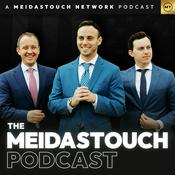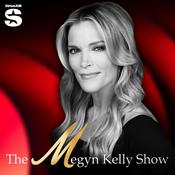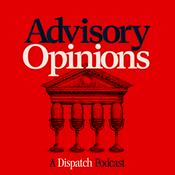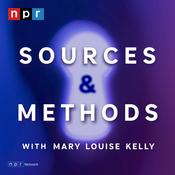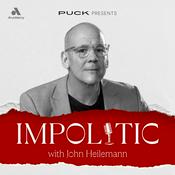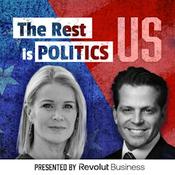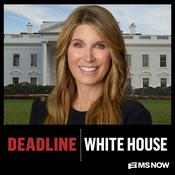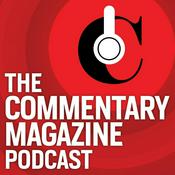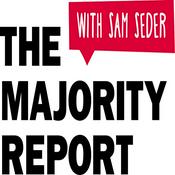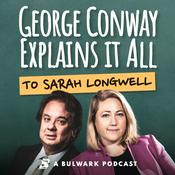Available Episodes
5 of 75
- The Obamacare Subsidy Cliff Is HereThe politics of healthcare are again front and center in Washington. Last week, Senate Democrats’ proposal to extend the enhanced Affordable Care Act subsidies for three years failed to get 60 votes, as did a Republican proposal that would end the subsidies but provide direct payments to some Americans to cover healthcare costs.Monday, December 15th is also the last day for enrollment in insurance that begins January 1st on the ACA marketplace. All that is a long way of saying that the cake appears mostly baked. Healthcare coverage costs will rise dramatically for millions of Americans next year and many will opt out of coverage altogether.A bipartisan group is still holding out hope of coming to some compromise, but if that does happen it will likely be after Americans have already started to feel those costs. So what exactly will the impact be and what do Americans think about it? On today’s podcast we dig into the data.We also take a broader look at President Trump’s approval rating and the recent claim from a friend of the pod that, “Trump’s Approval Ratings Are Low Again. This Time It Might Matter.” Plus we discuss Indiana Republicans’ rejection of an effort to gerrymander their state. Is it a story about redistricting or is it really a story about the power limitations of a lame duck president? And is that a leading question?Joining me on the podcast to keep me honest are Mary Radcliffe, head of research at FiftyPlusOne, and Nathaniel Rakich, managing editor at VoteBeat. This is a public episode. If you'd like to discuss this with other subscribers or get access to bonus episodes, visit www.gdpolitics.com/subscribe--------52:15
- Can Any Democrat Flip Texas?This is a free preview of a paid episode. To hear more, visit www.gdpolitics.comThe full episode is available to paid subscribers. Once you become a paid subscriber, you can connect your account to your preferred podcast player by following the directions here.Democratic Rep. Jasmine Crockett has jumped into the Texas Senate primary with just three months to go until Election Day. She’s controversial, at times outright offensive, and gets the cable news part of her party very excited. She also appears to be leading in early primary polling. (Sound familiar?) So, is the candidate The Atlantic is calling “a Democrat for the Trump era” up to the task of flipping Texas? Frankly, is any Democrat up to the task?On today’s podcast we take a look at how 2026 primaries are shaping up around the country in both the House and Senate. Beyond Texas, we check in on the latest in Maine, Michigan, and Georgia and debate whether the dividing lines are mainly generational, ideological, or just a fighter mentality. We also look at the results of recent elections in Miami and Tennessee where Democrats over-performed.Lastly, a case at the Supreme Court this week considers how much money the political parties should be able to spend in coordination with candidates. Should the relatively low caps be kept in place or should the flood gates be opened? With me to talk about it all is Deputy Editor of Inside Elections Jacob Rubashkin.--------22:31
- How The UK Became UngovernableIf you are tired of hearing about how messy American politics are, today I’m offering you a reprieve. You’re going to hear about how messy British politics are.Last week I was in London, exploring the city and speaking with journalists, friends and strangers alike about life in Britain. I visited a couple newsrooms and toured parliament during Prime Minister’s Questions. The big news of the day was the Labour government’s budget proposal and, despite their largest majority in nearly 30 years, Labour seems to be facing challenges on all sides.If American politics can feel disappointing or frustrating, wait till you hear Prime Minister Keir Starmer’s approval rating: net -52 percentage points. By comparison President Trump, facing his own second term low of net -14 points, looks utterly popular.Today we get into the challenges facing the Labour party and much more – the rise of the populist Right in the UK and Europe, relations with the US, and yes, people are still talking about Brexit.To do this I reassembled the team from the dearly departed Talking Politics podcast. The former hosts, Helen Thompson and David Runciman, used to join me on the also departed FiveThirtyEight Politics podcast during the height of the Brexit drama. Think of this as the ghosts of two podcasts past.Helen Thompson is a professor of political economy at Cambridge and author of the book “Disorder: Hard times in the 21st Century.” David Runciman is an honorary professor of politics at Cambridge and the host of the “Past Present Future” podcast. This is a public episode. If you'd like to discuss this with other subscribers or get access to bonus episodes, visit www.gdpolitics.com/subscribe--------1:08:09
- Is America Really 11 Nations?This is a free preview of a paid episode. To hear more, visit www.gdpolitics.comThe full episode is available to paid subscribers. Once you become a paid subscriber, you can connect your account to your preferred podcast player by following the directions here.Oftentimes when we talk about what divides the United States we talk about things like education, race, gender, or class. My guest today makes the argument that there’s something else fundamental at play, stretching back hundreds of years, to well before the founding of the country: the regional cultures that were developed by the people who settled America.It may seem like a stretch to say that after waves of immigration and internal migration, technological and social change, that the pilgrims, quakers, aristocrats, and pioneers are still culturally with us. But Colin Woodard argues that you can’t actually understand our contemporary politics and the fights we’re having without that context.In his previous book “American Nations” he laid out what he described as the 11 different “nations” – or culturally distinct regions – within America. In his new book “Nations Apart” he looks at the political and social differences across them on everything from voting, to health outcomes, to gun violence.He also discusses what kinds of common narratives have united us in the past and what might work again today based on public opinion research. Colin is the director of Nationhood Lab at the Pell Center for International Relations and Public Policy at Salve Regina University.--------13:26
- Celebrity Politicians, Dummymandering, And The Texas PrimaryIf everything is going to plan, I am on vacation this week. Fear not! I have recorded podcasts ahead of time so you’ll still have two episodes this week. However, don’t be surprised if something crazy has happened in the world and you don’t hear it mentioned in conversation. I haven’t forgotten, it’s just that whatever crazy thing we are now dealing with had not yet happened when the podcasts were recorded. If past is prologue, hold onto your seats, the news cycle rarely behaves while I’m away.Today we are opening up the mailbag to sort through our backlog of listener mail. Listeners have been sending in great questions lately! As a reminder, you can always share your questions in the paid subscriber chat at gdpolitics.com. You can also send questions to [email protected] and reach me via the usual social media channels.On today’s episode we discuss the power of celebrity in politics, the possibility of the Democratic presidential primary moving to a ranked choice voting system in 2028, the state of the Republican Texas Senate primary, and much more. With me to do it all is friend of the podcast and data scientist at the Washington Post, Lenny Bronner.P.S. — I am currently in London for a combination of work and fun. Feel free to use the channels above to share any recs! This is a public episode. If you'd like to discuss this with other subscribers or get access to bonus episodes, visit www.gdpolitics.com/subscribe--------58:20
More News podcasts
Trending News podcasts
About GD POLITICS
Making sense of politics and the world with curiosity, rigor, and a sense of humor. www.gdpolitics.com
Podcast websiteListen to GD POLITICS, Candace and many other podcasts from around the world with the radio.net app
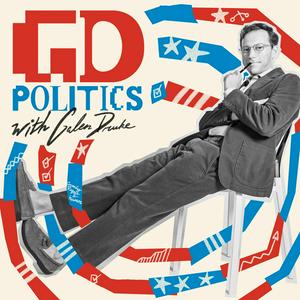
Get the free radio.net app
- Stations and podcasts to bookmark
- Stream via Wi-Fi or Bluetooth
- Supports Carplay & Android Auto
- Many other app features
Get the free radio.net app
- Stations and podcasts to bookmark
- Stream via Wi-Fi or Bluetooth
- Supports Carplay & Android Auto
- Many other app features


GD POLITICS
Scan code,
download the app,
start listening.
download the app,
start listening.


